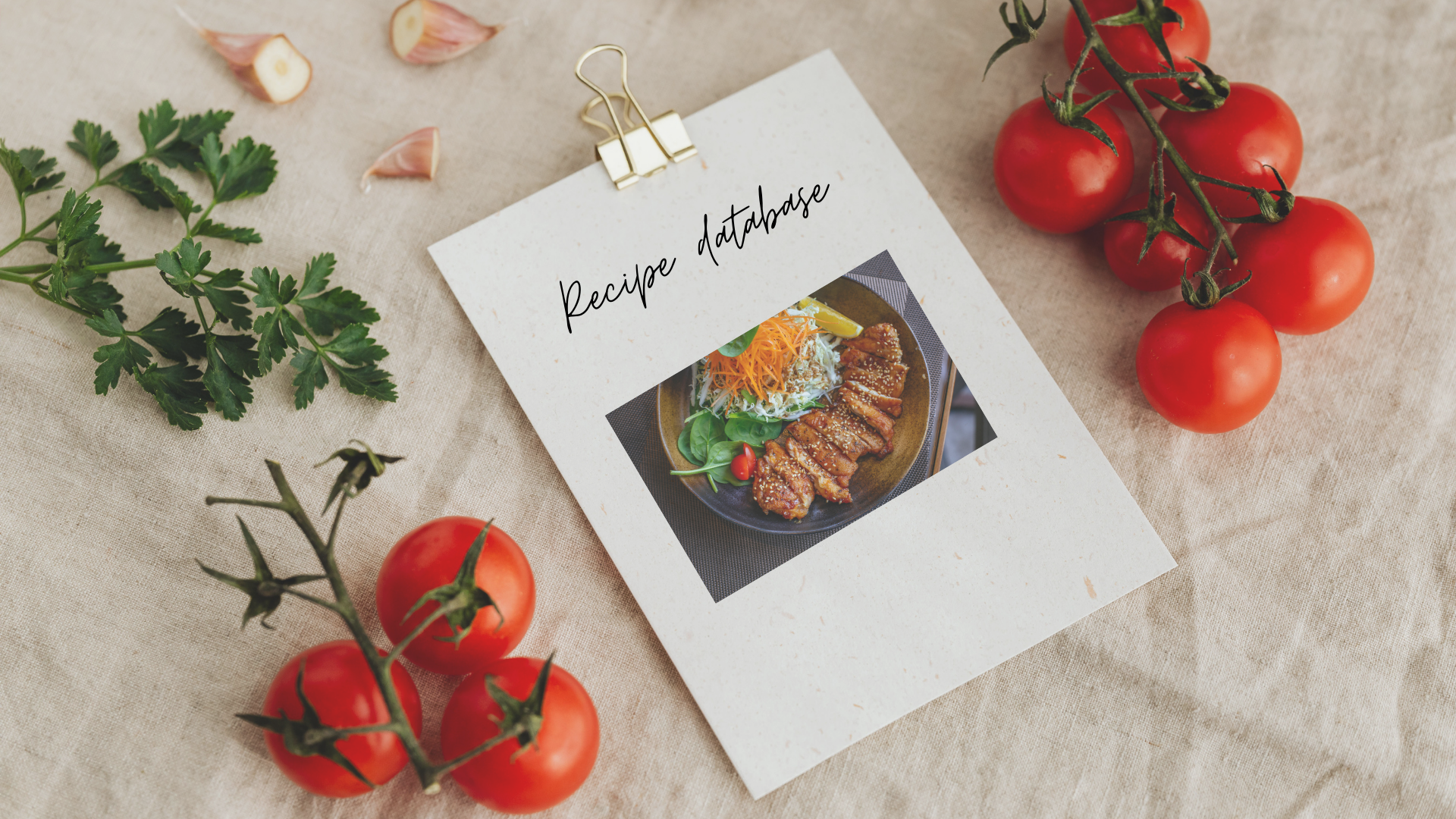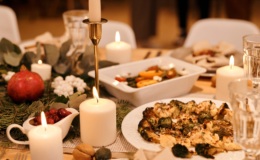Welcome to my mini-series for the month of May, where the focus shall be kitchen productivity. Today, we shall kick things off with a meal planning for beginners topic. Each week, we shall be tackling a different subjct to help you crush those meal planning, meal prepping, and batch cooking goals, and get productive in the kitchen. Result? Still eating well (even better in most cases), while having more time for the things that matter.
Let’s kick things off with a meal planning for beginners blog post with why you should have a recipe database. A recipe database should be the starting point of all meal planning endeavours.
What is it, might you ask?
Well, a recipe database is one central place where you keep a running list of the recipes you and the family likes, and maybe a few more you’d like to try. It can take the form of a notebook, digital list, paper list, or more advanced spreadsheets or apps.
The most important thing is that it works for you, and is as accessible as you can make it when you need it.
Here are 3 reasons to create a recipe database of your own
- Having a recipe database saves time
You want to cook that delicious chicken curry recipe you made last month. Or was it the month before? Anyhow, whichever month it was you know exactly how delicious it was. And how everyone gobbled it up. “New family favourite!”, we all exclaimed as you munched happily through dinner. The only problem is you cannot for the life of you figure out where you saw the darn recipe, let alone save it. Was it Pinterest? On an email? Did someone share it with you? Did you Google it?
Had you taken note of it in your database as soon as the recipe got the green light, you wouldn’t need to waste time looking everywhere. It’s what I do, and it helps me save time looking for the recipe, and sometimes just giving up altogether. - It beats the boredom
If pasta with pesto is on your list way too many times for anyone’s liking, it’s time to think about starting to create a recipe database. I’m in no way insinuating that you shouldn’t repeat meals (on the contrary, those firm favourites shouldn’t be forgotten), but there is a difference between putting pasta with pesto on your meal plan again because you’re at a loss as to what to cook, and putting pasta with pesto on your meal plan because it’s one of those foods everyone truly enjoys.
Bottom line: having a recipe database makes it easier to keep those favourites in rotation. I forget what foods we all enjoy, or any new favourites I come across. Had it not been for my database, I’d be stuck (and we’d all be bored eating pasta with pesto 🤣) - …and it makes cooking FUN!
All those new favourites now have a space to live. You can enjoy cooking without going overboard and picking any desperate, last-moment, super-complicated recipes, because your database is fairly packed with simple yet fun options with a little bit of a twist.
It’s so easy to save those recipes I come across without forgetting where I saw them. And it sure beats cooking same old, same old.
All in all, I find that a having a recipe database is the perfect way to strike a balance between loved and new recipes, without going overboard or spending too much time in the kitchen. Every recipe I love or want to access is noted in one singular place – which is so convenient!
If you want to start meal planning and want to keep it consistent, this is exactly where you should start. Create a recipe database and use it every time you meal plan. You can thank me later!
Following today’s meal planning for beginners blog post, next week I shall dive in to how to create a fail-proof grocery list on a budget. Set yourself a reminder, or better still, subscribe to get notified when it goes live!
PS: You do know I’ve always got something to help you get started, right? Access my totally free (and totally awesome) 100 recipes resource here. It includes a list of 100+ recipes that can be your inspiration for your own database.
They’re all handpicked, simple, and yummy! What’s more, I also guide you and point out which ones are freezer friendly, and which ones are slow cooker friendly, too!
Get it here.







Leave a Comment